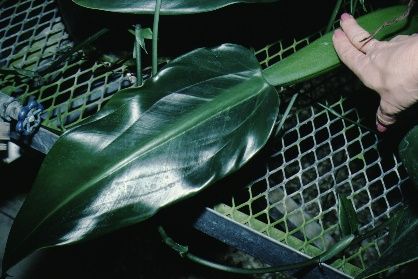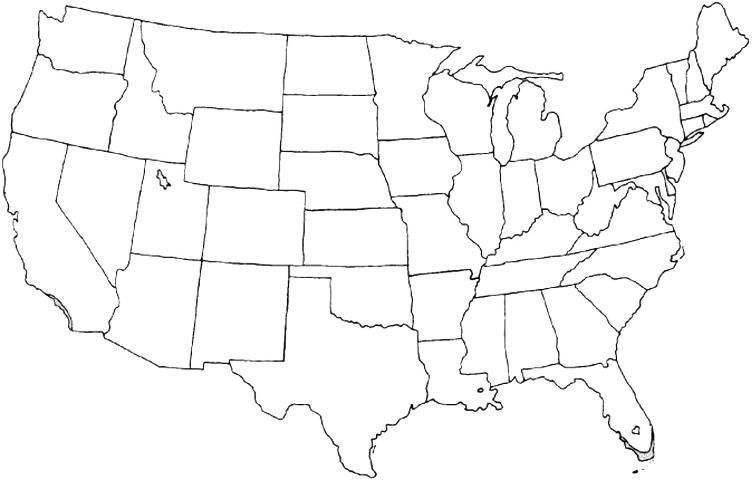Introduction
This dark green philodendron has 6 to 8 inch wide leaves which are 18 inches long. Flask philodendron is well suited to use as an accent or specimen planting or in mass as a ground cover or low shrub. It would be hard to find a small plant with a coarser texture. Plant on 3 to 4 foot centers in a mass planting to create a solid, dark green, two-foot-tall ground cover, or as a single specimen in a small-scale garden.

Credit: Edward F. Gilman, UF/IFAS
General Information
Scientific name: Philodendron martianum
Pronunciation: fill-loe-DEN-drun mar-shee-AY-num
Common name(s): flask philodendron
Family: Araceae
Plant type: perennial
USDA hardiness zones: 10B through 11 (Figure 2)
Planting month for zone 10 and 11: year-round
Origin: not native to North America
Invasive potential: not known to be invasive
Uses: mass planting; container or above-ground planter; accent; foundation; edging; suitable for growing indoors
Availability: somewhat available, may have to go out of the region to find the plant

Credit:
Description
Height: 1 to 2 feet
Spread: 2 to 3 feet
Plant habit: upright; spreading
Plant density: open
Growth rate: slow
Texture: coarse
Foliage
Leaf arrangement: spiral
Leaf type: simple
Leaf margin: entire
Leaf shape: ovate
Leaf venation: pinnate
Leaf type and persistence: evergreen
Leaf blade length: 12 to 18 inches
Leaf color: green
Fall color: no fall color change
Fall characteristic: not showy
Flower
Flower color: green
Flower characteristic: flowers periodically throughout the year
Fruit
Fruit shape: round
Fruit length: unknown
Fruit cover: fleshy
Fruit color: unknown
Fruit characteristic: inconspicuous and not showy
Trunk and Branches
Trunk/bark/branches: usually with one stem/trunk
Current year stem/twig color: green
Current year stem/twig thickness: very thick
Culture
Light requirement: plant grows in the shade
Soil tolerances: alkaline; clay; sand; acidic; loam
Drought tolerance: moderate
Soil salt tolerances: poor
Plant spacing: 24 to 36 inches
Other
Roots: not applicable
Winter interest: no special winter interest
Outstanding plant: plant has outstanding ornamental features and could be planted more
Pest resistance: long-term health usually not affected by pests
Use and Management
It grows best in deep shade locations in well-drained soil and is somewhat salt-tolerant. It can bring to life a dark area of the landscape with an overstory of trees. Normally used for making crosses in the nursery trade, flask philodendron may be hard to come by in retail garden centers.
Propagation is by seed or cuttings.
Pests and Diseases
Pest problems include mites, scale, and mealy bugs.
The leaves are susceptible to fungal leaf spot diseases.